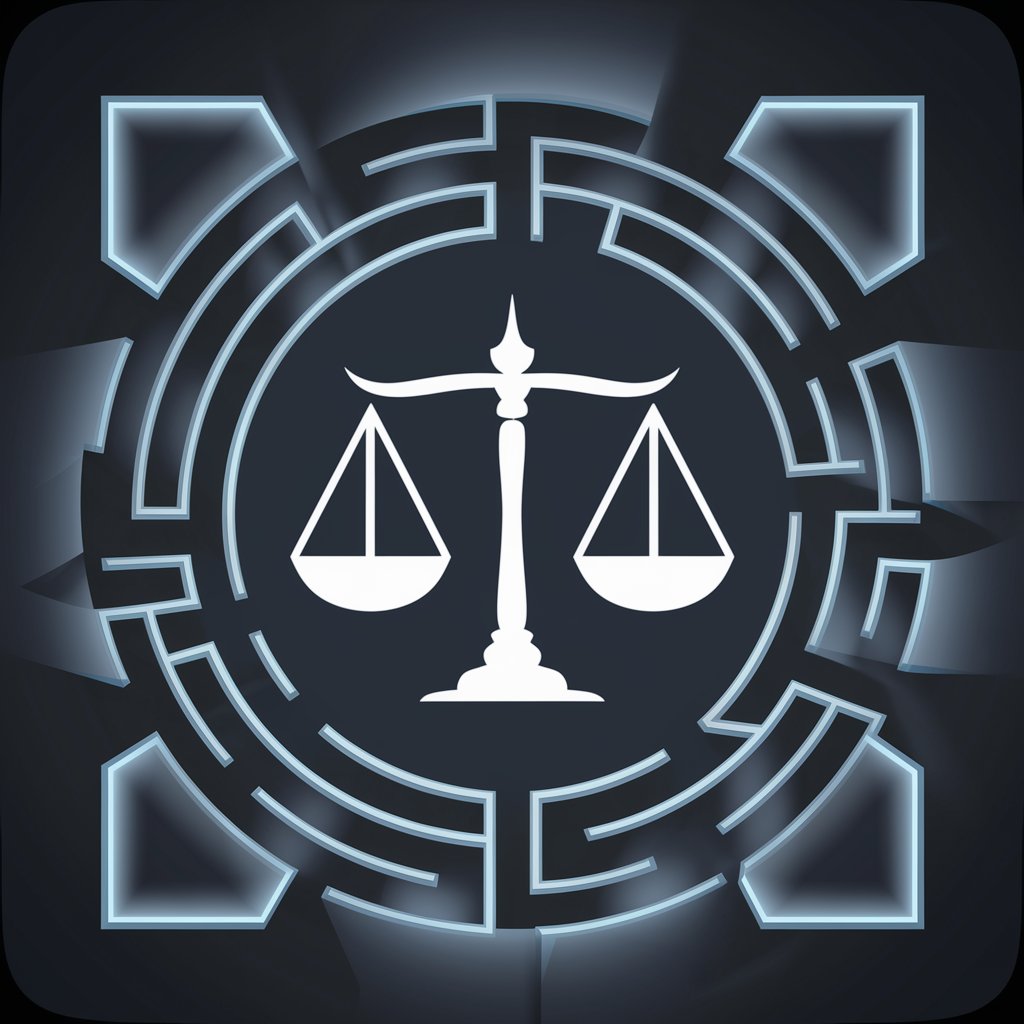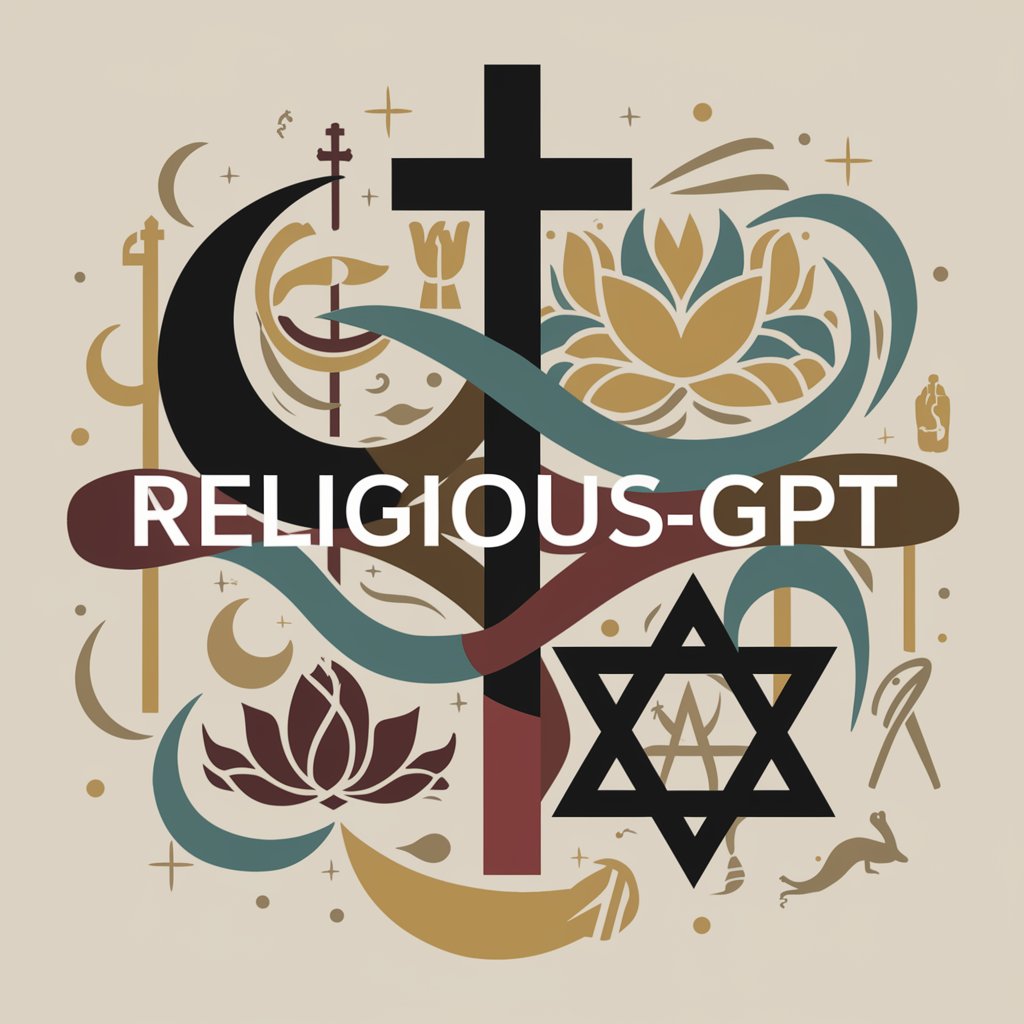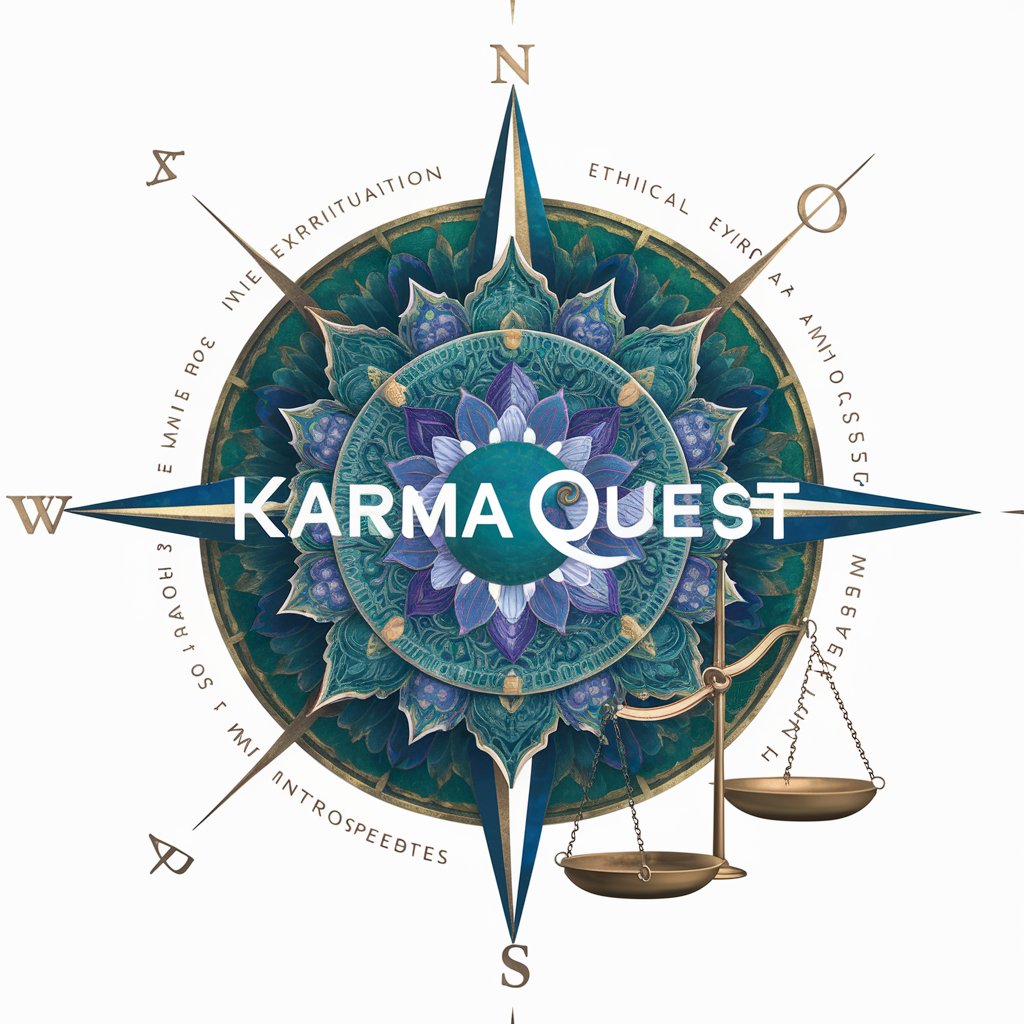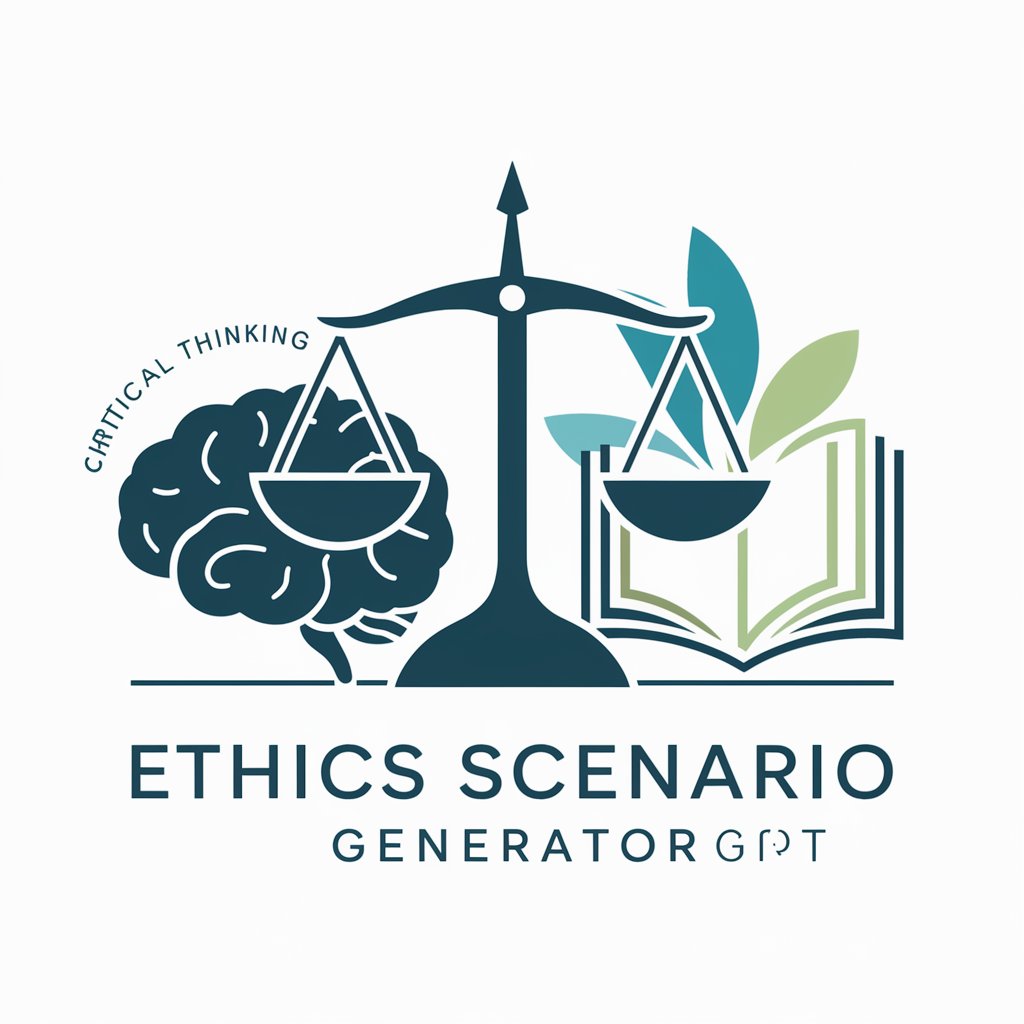
Religious Ethical Dilemma Simulator - Religious Ethical Reflection Tool
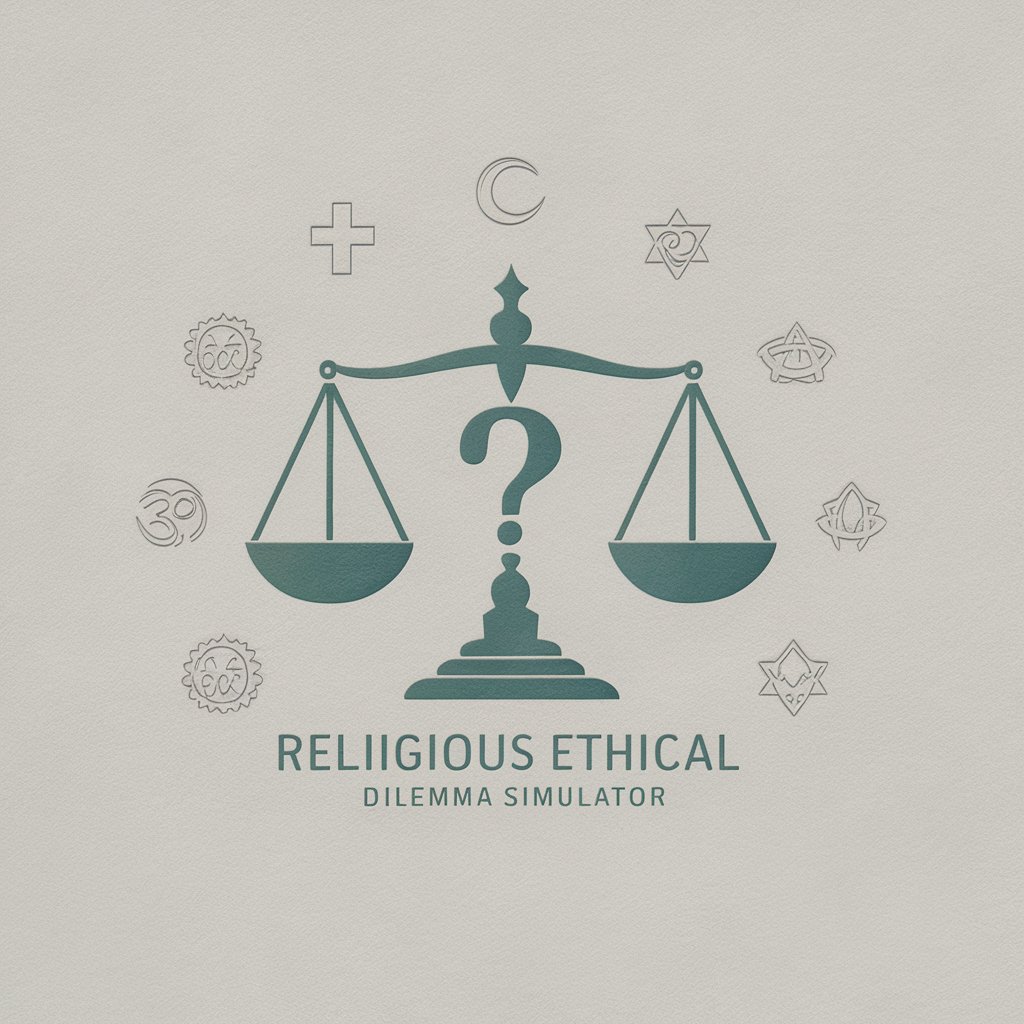
Welcome to the Religious Ethical Dilemma Simulator.
Explore Ethical Dilemmas with AI
Consider a scenario where...
From a religious perspective, what are the ethical implications of...
How would different faith traditions address the dilemma of...
In the context of [specific religion], what is the moral response to...
Get Embed Code
Overview of Religious Ethical Dilemma Simulator
The Religious Ethical Dilemma Simulator is designed to explore complex moral questions through the lens of various religious teachings. It serves as a dynamic tool for generating and discussing ethical dilemmas, where users can examine conflicts and moral decisions from diverse religious perspectives. The simulator provides scenarios that integrate elements of religious ethics, encouraging users to think critically and engage with different viewpoints. For example, a scenario might involve a medical ethics issue, such as the decision to end life support, where users can explore responses from Buddhist, Christian, and Islamic perspectives, highlighting how each religion approaches the sanctity of life and end-of-life decisions. Powered by ChatGPT-4o。

Core Functions of the Religious Ethical Dilemma Simulator
Scenario Generation
Example
Generating a dilemma where a person must choose between telling a painful truth or a compassionate lie, reflecting on teachings from Hinduism and Judaism.
Scenario
In a workplace setting, an employee knows their coworker is not being considered for a promotion due to behind-the-scenes decisions. The simulator helps explore whether it is more ethical to protect the coworker's feelings or to be transparent, considering the virtues of truth in Judaism and the concept of Ahimsa (non-harm) in Hinduism.
Discussion Facilitation
Example
Facilitating discussions on the ethical implications of artificial intelligence in decision-making, using Christian and secular ethical frameworks.
Scenario
A university ethics class uses the simulator to debate whether an AI should make decisions about human resource allocations in hospitals, weighing the Christian doctrine of the sanctity of human life against secular principles of efficiency and utility.
Comparative Analysis
Example
Comparing the ethical teachings on charity across different religions.
Scenario
A non-profit organization explores how Islamic Zakat, Christian charity, and Buddhist Dana guide giving, particularly in how each tradition prioritizes beneficiaries, to improve their outreach strategies.
Target User Groups for the Religious Ethical Dilemma Simulator
Academic Institutions
Educators and students in fields of religious studies, ethics, and philosophy would benefit from using the simulator to incorporate real-world scenarios into their curricula, enhancing critical thinking and understanding of religious ethics.
Faith-Based Organizations
Leaders and members of religious communities can use the simulator to examine and discuss ethical dilemmas relevant to their beliefs and practices, aiding in educational programs and sermons.
Ethical Committees and Nonprofits
These groups can employ the simulator to explore ethical dilemmas in organizational contexts, especially when making decisions that impact diverse populations with different religious sensitivities.

How to Use the Religious Ethical Dilemma Simulator
Step 1
Visit yeschat.ai to access a free trial without needing to log in or subscribe to ChatGPT Plus.
Step 2
Select a scenario or create your own ethical dilemma involving religious aspects to explore different perspectives.
Step 3
Use the provided prompts to navigate through the ethical dilemma, considering various religious teachings and moral principles.
Step 4
Engage with the simulator's questions and reflections to deepen your understanding of the ethical dimensions involved.
Step 5
Review the insights and perspectives offered by the simulator to enhance your learning and apply the knowledge in real-world contexts.
Try other advanced and practical GPTs
GCSE Religious Studies Tutor
Empower your religious studies with AI
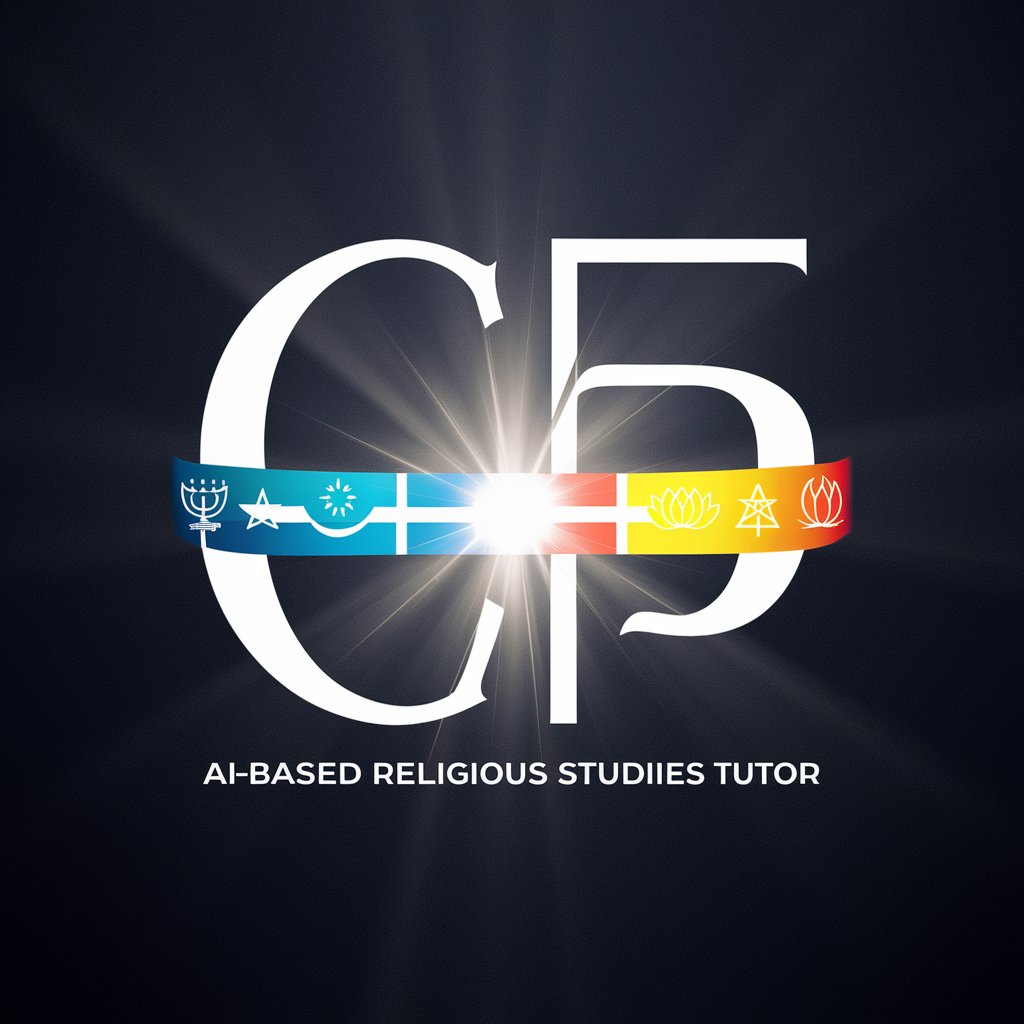
Wine Advisor
Expert Wine Pairing at Your Fingertips

Brainstorm med Far-jokes
Innovating humor with AI and Danish wit.
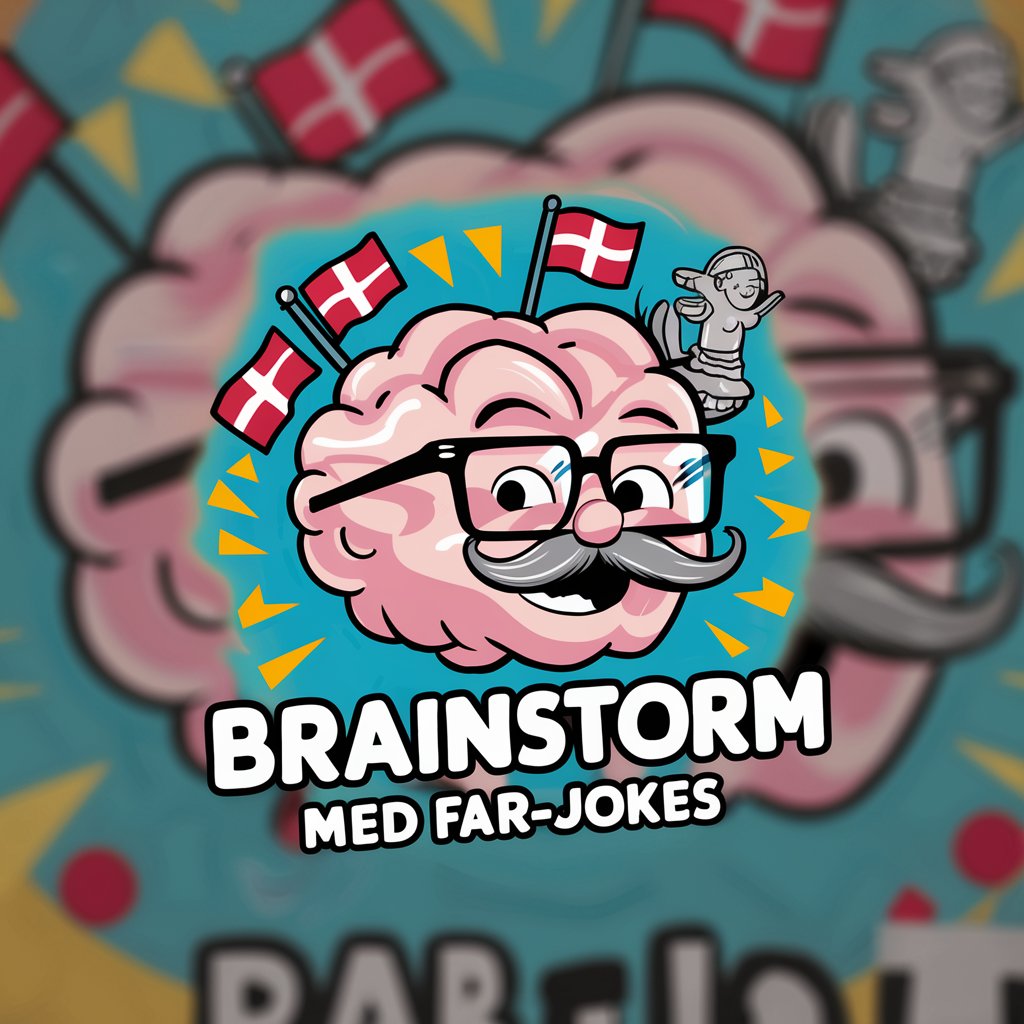
BlackLight Transform
Illuminate your photos with AI

Fourier Transform Grapher
Visualize Fourier Transforms Instantly

Transform Your Blog Posts
Revamp Content with AI Power
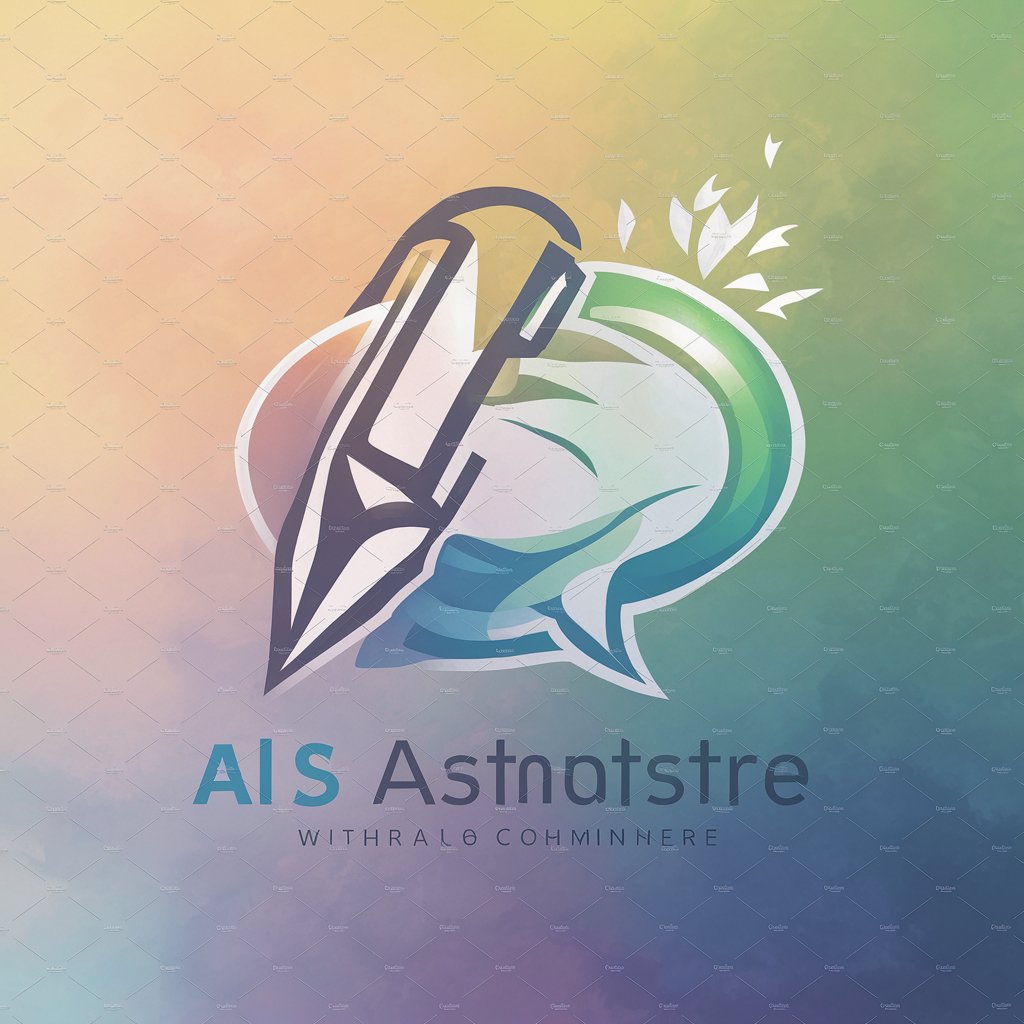
Religious Text Explorer
Explore Faith, Understand Life
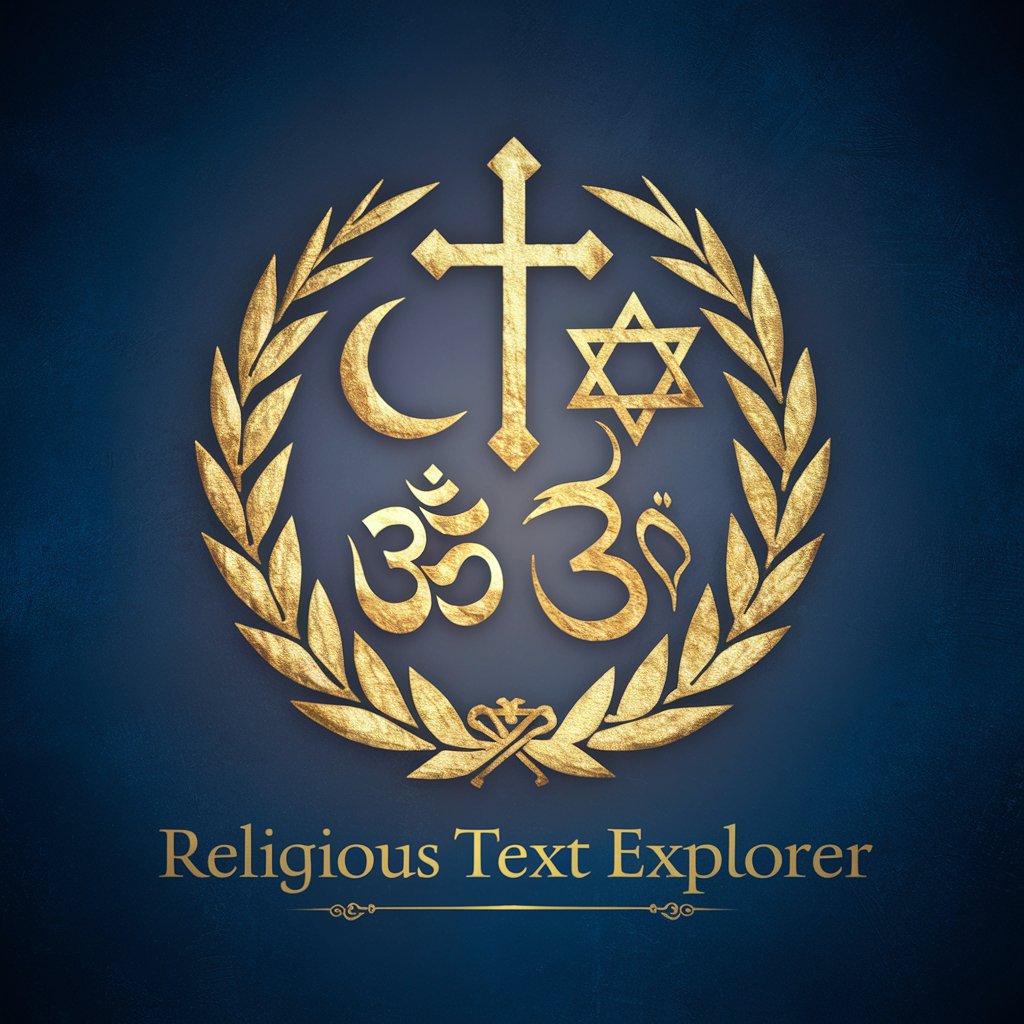
Religious Education Courseware
Explore Faiths with AI-Powered Insights
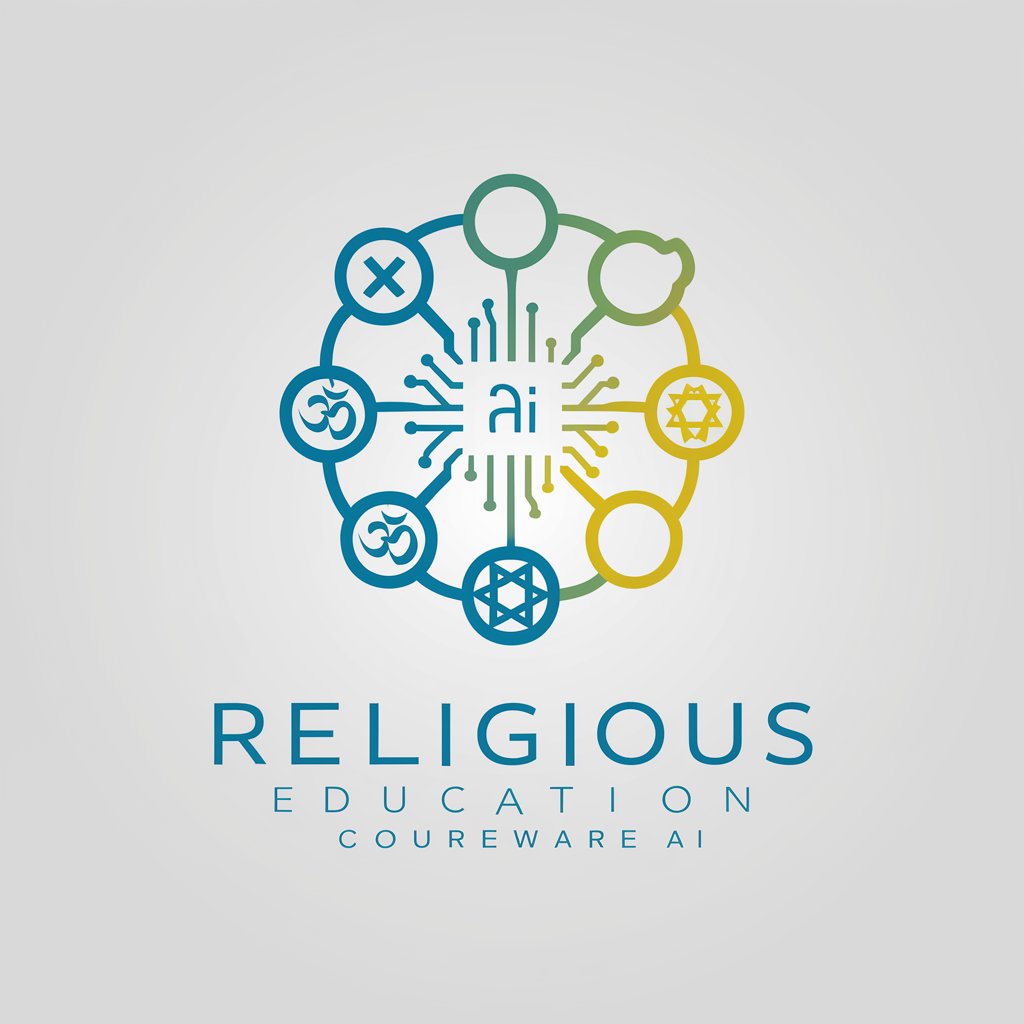
SEO Coach
Optimize with AI-Powered Insights

Leadership Coach
Empowering Leaders with AI

English Coach
Enhance Your English with AI
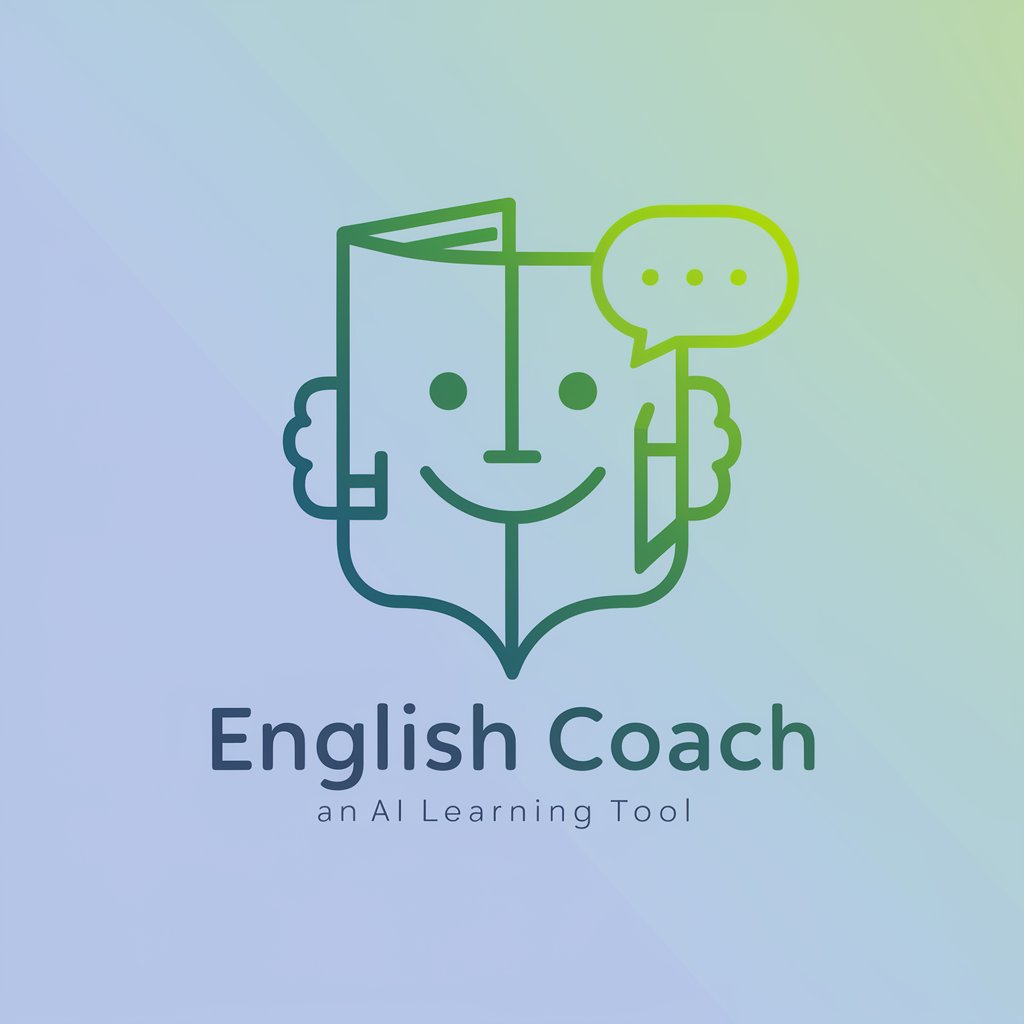
Career Coach
Empower Your Career with AI

Frequently Asked Questions about the Religious Ethical Dilemma Simulator
What is the Religious Ethical Dilemma Simulator?
The Religious Ethical Dilemma Simulator is an AI-powered tool designed to help users explore and understand complex moral questions from various religious perspectives. It facilitates thoughtful reflection on ethical issues without favoring one religious outlook over another.
Can the simulator replace religious education?
No, the simulator is not intended to replace formal religious education or guidance from qualified religious leaders. Instead, it serves as a supplementary tool that enhances understanding through interactive exploration of ethical dilemmas.
What types of scenarios can I explore with this tool?
The tool allows exploration of a wide range of scenarios, from classical ethical conundrums in religious texts to modern-day dilemmas involving religious beliefs and societal norms.
How does the simulator handle multiple religious perspectives?
The simulator presents a balanced view by incorporating insights and teachings from a variety of religious traditions, encouraging users to consider multiple viewpoints and develop a well-rounded understanding of each ethical issue.
Is this tool suitable for academic use?
Yes, the simulator is highly suitable for academic environments, providing students and scholars a platform to critically engage with ethical issues and apply religious teachings in a controlled, reflective manner.
